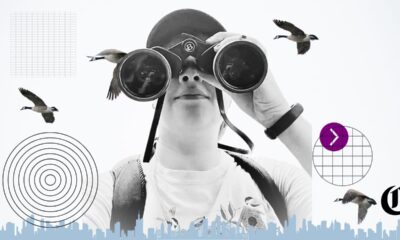Questions of the Day Program
Gwadabe & Rabie: If we don’t value our languages, it’s difficult for anyone else to value them
In this 3rd installment of a special series on CivicSciTV’s Questions of the Day (QOTD) Program, Africa Special Correspondent Stephanie Okeyo interviews a computer scientist/natural language processing researcher Tajuddeen Gwadabe, and an Afrikaans linguistic/African language consultant Michelle Rabie, who discuss the importance of making scientific information accessible in native languages and the challenges of translating complex scientific papers into local languages with limited resources. The conversation also highlights the role of machine learning and technology in facilitating this process.
Gwadabe and Rabie underscore the necessity of developing terminology in non-standardized languages and the collaborative efforts required to make scientific knowledge more inclusive. They encourage the use of digital platforms and community engagement to tailor content to local needs, ensuring that science communication is both understandable and relevant.
Rabie, who has over 23 years of experience in the language services industry, shares her experience in developing specialized quality-control services aimed at testing the accuracy of high-risk translations. She emphasizes the importance of incorporating a terminology development phase in translation projects to ensure accuracy and cultural relevance.
The insights shared underscore the importance of linguistic diversity in science and the collective efforts needed to bridge the gap between scientific knowledge and public understanding. The “Decolonise Science” initiative exemplifies how interdisciplinary collaboration and community engagement can foster a more inclusive approach to science communication.
Learn more about Masakhane MT: Decolonise Science https://www.masakhane.io/ongoing-projects/masakhane-mt-decolonise-science
Stephanie Okeyo is a Microbiologist and Science Communicator. She is the founder of Under the Microscope. Some of her previous professional roles include Ambassador of Women in Science, East Africa and Representative to the United Nations office, Geneva at the Royal Academy of Science International Trust (RASIT). In 2019, she was listed as one of Under 30: Breaking Barriers Women in STEM and is a 2021 Zuri STEM category nominee. Stephanie is passionate about empowering young girls and being a voice for gender equality in Science and Technology.

-
 Audio Studio1 month ago
Audio Studio1 month ago“Reading it opened up a whole new world.” Kim Steele on building her company ‘Documentaries Don’t Work’
-
Civic Science Observer1 week ago
‘Science policy’ Google searches spiked in 2025. What does that mean?
-
Civic Science Observer1 month ago
Our developing civic science photojournalism experiment: Photos from 2025
-
Civic Science Observer1 month ago
Together again: Day 1 of the 2025 ASTC conference in black and white
Contact
Menu
Designed with WordPress
























